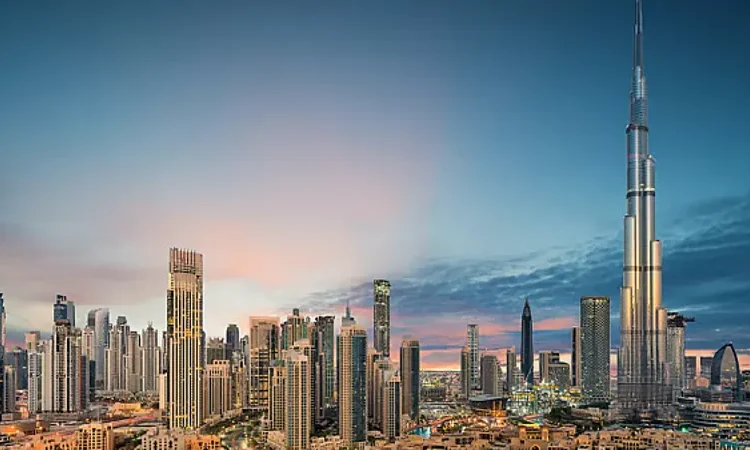
Dubai: Tenants negotiate lower rents as new units boost options
The growing supply of new residential units in Dubai is giving tenants more options to renegotiate their lease terms as rents dropped slightly during the first half of 2025.
Based on rental contract data from the Dubai Land Department (DLD), residential rents saw a slight decline of 0.6 per cent in the first half of 2025 compared to the second half of 2024, said Cavendish Maxwell.
“This dip was mainly due to a fall in renewal contract rental rates, as more units have come onto the market, giving tenants more options and greater room to negotiate with landlords. This reflects growing tenant confidence, with many choosing to renegotiate lease terms or move, especially in areas with increased new supply. However, compared to the first half of 2024, rents are still up, “showing an annual growth of 9.9 per cent,” the real estate consultancy’s analysts said in the latest report on Dubai’s real estate market.
Rents in Dubai have been on the rise for over the past four-and-a-half years due to demand outstripping supply amidst strong growth in population. Most of the communities in the emirate saw a nearly double-digit increase in rentals over the past years.
Data showed that around 17,300 residential units were completed in the first half of 2025.
It is estimated that over 61,800 units are under construction, and more than 100,000 units are projected for delivery in both 2026 and 2027. This could be an average of 9,000 units being delivered each month through 2027, but actual completion rates are expected to be lower, which may lead to timeline shifts and delayed handovers.
In the first half of 2025, over 244,000 rental contracts were registered, with renewal contracts continuing to dominate the market and accounting for approximately 66.8 per cent of all agreements.
“Should upcoming supply materialise faster than current market absorption, it could offer significant relief to tenants by easing upward pressure on rents,” said Cavendish Maxwell.
“Dubai’s residential market continues to benefit from what is now becoming an identifiably almost unique combination of positive factors. First, global uncertainties are prompting investors to look for more stable environments, with the UAE emerging as a preferred destination for capital. Second, positive macroeconomic indicators across the board, including both economic growth and inflation. Third, and as a result of all these factors, population growth driven by job opportunities and political stability,” said Julian Roche, chief economist at Cavendish Maxwell.
“Whilst all real estate markets are cyclical and Dubai can ultimately be no exception to a point of inflexion driven by increasing supply, it is important to remember that by comparison to international benchmarks, Dubai remains competitive across the range of residential property, including luxury,” he added.
The gross rental yields in Dubai stood at 7.2 per cent for apartments and 5 per cent for villas and townhouses.
“With sales prices continuing to rise at a faster pace than rental rates, yields recorded a slight decline compared to the second half of 2024. Despite this, Dubai’s rental yields remain strong and continue to outperform those in many major global markets,” said Cavendish Maxwell.
For More Details: Please Visit FajarRealty
Source: Khaleej Times
12th August 2025
